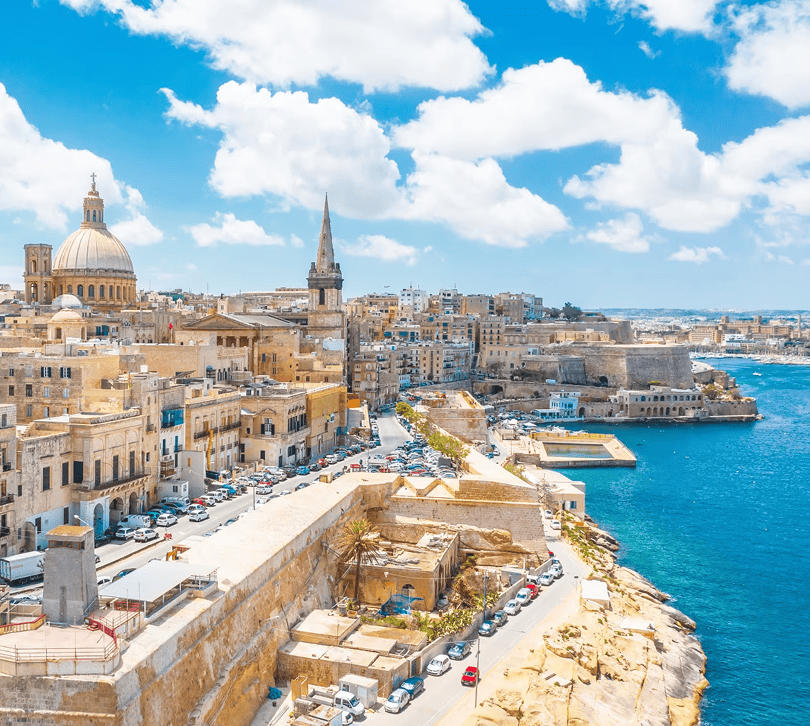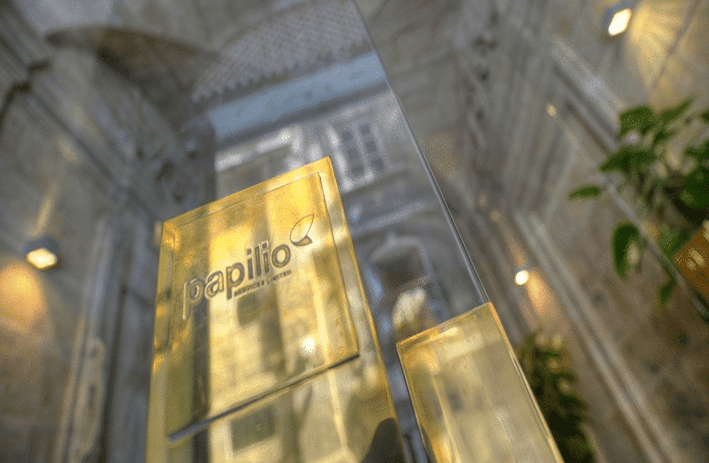Malta has established itself as a preferred jurisdiction for entrepreneurs from the UK and other non-EU countries who want to expand operations into the EU Single Market, especially when it comes to importing goods. This is particularly advantageous for startups and small enterprises, thanks to Malta’s competitive position with one of the lowest VAT rates in the EU. A general summary of the VAT positions in the UK and Malta is provided here, along with the opportunities these distinctions present for the UK and other non-EU business owners.
UK VAT Registration Thresholds
The VAT registration threshold is £85,000 in taxable turnover over a 12-month period. Businesses below this threshold can voluntarily register for VAT if they wish to reclaim VAT on expenses. Deregistration is allowed if taxable turnover is expected to fall below £83,000 in the next 12 months.
VAT Rates
Malta’s lower standard VAT rate (18% vs. 20%) can make goods and services more affordable for consumers. UK businesses targeting the Maltese market can use this to their advantage by offering competitive pricing.
The UK standard VAT rate is 20%. The reduced VAT rate is 5% (e.g., for energy-saving materials, children’s car seats). Also, the UK applies a zero VAT rate (0%) for most food, books, and children’s clothing.
Malta’s standard VAT rate is 18%. Also, Malta applies reduced VAT rates:
- 7% for accommodation services.
- 5% for electricity, medical accessories, and certain printed materials.
Malta’s zero VAT rate (0%) applies, for an e.g., for exports, intracommunity supplies, and international transport.
VAT on Cross-Border Transactions
UK businesses exporting to Malta can benefit from zero-rated VAT on exports. Additionally, Maltese businesses importing from the UK may reclaim Maltese VAT if carrying out a commercial qualifying activity, making UK goods attractive in the Maltese market.
UK
Post-Brexit, the UK is no longer part of the EU VAT system. This means that exports to the EU (including Malta) are zero-rated for VAT. Imports from the EU are subject to UK VAT, but businesses can use the postponed VAT accounting scheme to avoid upfront VAT payments.
Malta
As an EU member state, Malta follows the EU VAT Directive. Intra-EU supplies of goods are zero-rated for VAT if the buyer is VAT-registered in another EU country. Imports from non-EU countries (e.g., the UK) are subject to Maltese VAT upon entry.
VAT Compliance and Filing
UK businesses accustomed to MTD may find Malta’s VAT compliance system simpler, especially for small-scale operations. This can reduce administrative costs and complexity.
UK
VAT returns are filed quarterly, and businesses must comply with Making Tax Digital (MTD) requirements, which mandate the use of approved software for VAT recordkeeping and submissions.
Malta
VAT returns are typically filed quarterly, but small businesses under the exemption scheme may file annually. Malta does not currently have a system as advanced as MTD, making compliance potentially less burdensome for small businesses.
VAT Refunds
UK entrepreneurs visiting Malta for business purposes can claim VAT refunds on eligible expenses which have suffered input tax, reducing the cost of doing business in Malta.
UK
Businesses can reclaim input VAT on expenses related to taxable supplies, provided they have valid VAT invoices.
Malta
Similar to the UK, businesses can reclaim VAT on expenses. However, Malta also allows VAT refunds for non-EU businesses (e.g., UK businesses) under specific conditions, such as for travel expenses incurred in Malta.
Special Schemes
UK businesses dealing in secondhand goods or art can benefit from the margin schemes in both countries. Additionally, small UK businesses entering the Maltese market can take advantage of the Small Undertakings Scheme to remain competitive.
UK
Flat Rate Scheme: Simplifies VAT for small businesses by allowing them to pay a fixed percentage of turnover as VAT.
Margin Scheme: Applies to secondhand goods, works of art, and antiques.
VAT Retail Export Scheme: Allows tourists to reclaim VAT on goods purchased in the UK.
Malta
Small Undertakings Scheme: Exempts small businesses from charging VAT if turnover is below the thresholds mentioned earlier.
Margin Scheme: Similar to the UK, it applies to secondhand goods and works of art.
Double Taxation Relief
When dealing with tax matters between Malta and the United Kingdom, it is important to understand how the Double Tax Treaty between Malta and the United Kingdom affects taxation on income, capital gains, and other financial obligations. This treaty allows individuals and businesses to lower their tax liabilities and reduce the risk of being taxed twice on the same income. By utilising this agreement, both residents and companies can optimise their tax positions when operating or investing between Malta and the UK. UK businesses can also take advantage of this treaty to manage their tax liabilities across both jurisdictions effectively.
Conclusion
UK entrepreneurs can capitalise on Malta’s lower VAT rates, making goods more attractive in the market, allowing businesses to offer competitive pricing. Additionally, the simplified VAT compliance process in Malta can significantly reduce administrative burdens, particularly benefiting small businesses. The zero-rated status of exports from the UK to Malta is enhancing profitability. Businesses can also benefit from VAT refunds on eligible expenses incurred in Malta, further lowering operational costs. Furthermore, the existing Double Taxation Relief agreement between the UK and Malta ensures tax efficiency for cross-border operations, minimising the risk of double taxation. By strategically leveraging these differences, UK entrepreneurs can effectively expand their businesses into Malta, optimising costs and maximising profitability.
Specialist VAT Advice in Malta
At Papilio Services, our seasoned VAT advisor possesses extensive knowledge of Malta and EU VAT legislation, with years of hands-on experience helping clients with a variety of VAT services. These services range from simple VAT registration inquiries to more complex issues such as cross-border supplies, bonded supplies, and the importation of goods into the European Union. We assist clients with everything from straightforward Malta VAT registration to resolving disputes with the VAT department in Malta. Contact us to arrange a consultation, where we can better understand your situation and provide you with tailored advice moving forward.

















